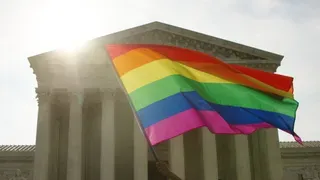February 5, 2013
British Lawmakers Vote in Favor of Gay Marriage
Jason St. Amand READ TIME: 2 MIN.
British lawmakers on Tuesday voted overwhelmingly in favor of a bill to legalize same-sex marriage championed by Prime Minister David Cameron, despite stronger-than-expected opposition from within his Conservative Party.
In a first House of Commons vote, lawmakers voted 400 to 175 in support of the legislation. There was strong support from the left-leaning Labour Party and Liberal Democrats party, but many Conservatives rejected the proposals.
The bill will have to go through more detailed parliamentary debates and a vote in the House of Lords, where a vote in favor is likely given the strong support Tuesday. If it becomes law, the proposed bill would enable same-sex couples to get married in both civil and religious ceremonies, provided that the religious institution consents.
Earlier, Cameron - who did not attend the debate - said passing the bill is "an important step forward" for Britain.
"I am a strong believer in marriage. It helps people commit to each other and I think it is right that gay people should be able to get married too," he said. "This is, yes, about equality. But it is also about making our society stronger."
Officials have stressed that all religious organizations can decide for themselves if they want to "opt in" to holding gay weddings. However, the Church of England, the country's official faith, is barred from performing such ceremonies unless it changes its laws.
The bill would also allow couples who had previously entered into civil partnerships to convert their relationship into a marriage.
Critics say the proposals would change long-standing views about the meaning of marriage. Some Conservatives also fear the proposals would cost the party a significant number of votes in the next election.
"Marriage is the union between a man and a woman, has been historically, remains so. It is Alice in Wonderland territory, Orwellian almost, for any government of any political persuasion to seek to come along and try to re-write the lexicon," Conservative lawmaker Roger Gale said.
If passed, the bill's provisions would come into effect in 2015, ahead of the next British general election.



